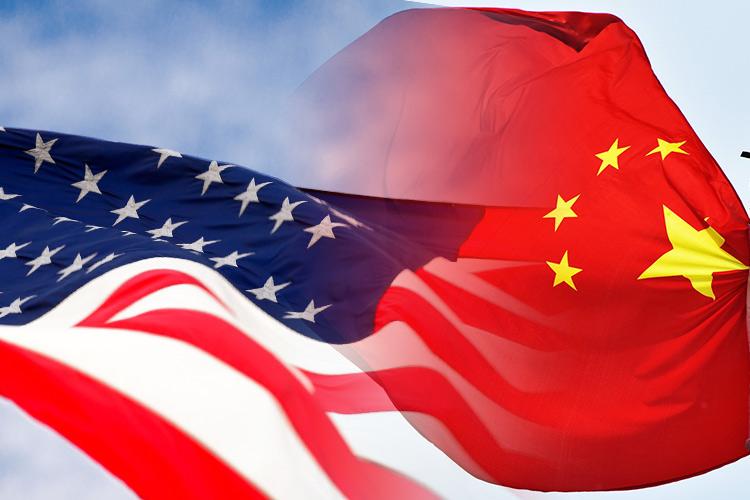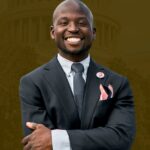China said Sunday that relations with the United States were “on the brink of a new Cold War”, fuelled in part by tensions over the coronavirus pandemic that has killed nearly 350,000 people worldwide and pitched the global economy into a massive downturn.
Fresh tensions between Beijing and Washington emerged as Muslims around the world celebrated an end to the holy month of Ramadan muted by virus lockdowns and more European nations prepared to further ease their own restrictions.
Globally more than 5.3 million people have been infected by the virus, which most scientists believe jumped from animals to humans — possibly at a market in the central Chinese city of Wuhan, where the pandemic emerged in December.
The origins of the virus and China’s response have become highly politicised, with US President Donald Trump accusing Beijing of a lack of transparency, and pushing the theory that the virus leaked from a Chinese maximum-security laboratory.
Chinese Foreign Minister Wang Yi said Washington had been infected by a “political virus” to continually attack China, but added the country would be open to an international effort to find the coronavirus source.
“It has come to our attention that some political forces in the US are taking China-US relations hostage and pushing our two countries to the brink of a new Cold War,” Wang told a press conference at China’s week-long annual parliament session.
Wang blasted what he called efforts by US politicians to “fabricate rumours” about the virus origin and “stigmatise China”.
“China is open to working with the international scientific community to look into the source of the virus,” he said. “At the same time, we believe that this should be professional, fair and constructive.”
While European nations initially among the hardest hit by COVID-19 have started to ease lockdowns in a bid to salvage economies and lifestyles, other countries such as Brazil, where deaths have surged, are emerging as new centres of the pandemic.
Hundreds of millions of Muslims around the world were celebrating the Eid al-Fitr holiday, marking the end of the Islamic fasting month of Ramadan, with Islam’s two most important mosques still closed to worshippers in Mecca and Medina.
At the same time, churches were reopening in some countries, Spain’s football league announced it would kick off again on June 8, and thousands flocked to beaches in the US, where lockdowns and social distancing have become rights issues that have split communities.
In Britain, Prime Minister Boris Johnson, who recovered from the virus himself, on Sunday faced increased pressure to sack top aide Dominic Cummings who was accused of breaching his government’s own lockdown rules for a second time.
– End of Ramadan –
With infection numbers stabilising in the West, many governments are trying to move towards lighter social distancing measures to revive moribund business and tourism sectors while remaining wary of a second wave of infections.
Italy and Spain — with some of the highest virus fatalities — have slowly reopened businesses, beaches and restaurants after imposing some of the world’s strictest lockdowns for weeks.
In Spain, Prime Minister Pedro Sanchez sought to reassure potential visitors, saying that from July 1, “entry for foreign tourists into Spain will resume in secure conditions”.
Italy is also due to reopen its borders to foreign tourists from June 3.
French churches were holding their first Sunday masses in more than two months after the government bowed to a court ruling that they should be reopened — provided proper precautions were taken.
“My cell phone is crackling with messages!” Father Pierre Amar, a priest in Versailles, just outside Paris, told AFP.
France’s mosques, however, called on Muslims to stay at home for the Eid al-Fitr holiday. They said they would gradually resume services from June 3.
In Pakistan, thousands gathered in mosques, but celebrations were muted by the crash Friday of a passenger plane into a residential neighbourhood in Karachi, killing 97.
The country’s leading English daily, Dawn, said the crash and coronavirus epidemic — that has killed over 1,000 people in Pakistan — had robbed the “country of whatever little joy had been left at the prospect of Eid”.
In Saudi Arabia, Eid prayers will be held at the two holy mosques in the cities of Mecca and Medina “without worshippers”, authorities said as the kingdom began a five-day curfew after infections quadrupled since the start of Ramadan.
In Senegal’s capital Dakar, muslim worshippers packed the outdoor floors of the esplanade at a main mosque for Eid prayers. Orderlies distributed hand gel and tried to keep people apart to respect social distancing.
Some faithful gathered for prayer on a nearby beach, kneeling on the sand to keep a safe distance apart.
For Christians in Jerusalem, the Church of the Holy Sepulchre briefly reopened its doors, but with tight restrictions in place.
– US beaches reopening –
Despite positive signs elsewhere, the disease continued its surge in large parts of South America, with the death toll in Brazil passing 22,000 and infections topping 347,000, the world’s second-highest caseload.
Neighbouring Peru is also struggling with more than 3,100 deaths.
In the US, where the death toll is highest in the world nearing 100,000, Trump has aggressively pushed to reopen the economy, defying the advice of health experts.
He sent a signal of his intentions by playing golf Saturday — his first round since March 8.
The New York Times marked the grim US toll on Sunday with a memorial on its front page carrying one-line obituaries for 1,000 victims.
The US economy has shed almost 40 million jobs this year and many companies have gone to the wall. But most states have begun easing their lockdowns and many reopened public beaches.
In Britain, a scandal has erupted over disclosures that top government adviser Dominic Cummings had flouted the lockdown rules.
Cummings was seen visiting his parents in Durham, 250 miles (400 kilometres) away from his London home in March, despite suffering from virus symptoms.
The Observer and Sunday Mirror reported he had broken lockdown restrictions again and was seen in Durham a second time on April 19, days after he had returned to work in London following his first trip north.
Cummings denies any wrongdoing and the British government has so far rejected calls to sack him over the allegations. (AFP)

 Join Daily Trust WhatsApp Community For Quick Access To News and Happenings Around You.
Join Daily Trust WhatsApp Community For Quick Access To News and Happenings Around You.


